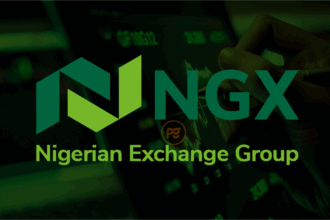To drive sustainable business growth in the country, adopting and integrating the principles of Environmental, Social, and Governance (ESG) have been emphasised.
At the Sustainable Futures Africa event, hosted by Hudson Sandler in collaboration with the United Nations Global Compact Nigeria in Lagos, on Wednesday, industry leaders, experts, and stakeholders, while discussing ESG aspects of sustainable development in Nigerian businesses, noted that adoption of ESG is imperative for businesses to scale.
Naomi Nwokolo, Executive Director of UN Global Compact Network Nigeria, noted that globally, there was an average annual funding shortfall of USD 2.5 trillion between public and private investments in sectors related to the Sustainable Development Goals (SDGs) in developing countries (UN Sustainable Development Group).
While decrying that businesses in Africa were making huge contributions to society, but few were fully engaged in environmental, social, and governance (ESG) issues, Nwokolo said to achieve maximum impact and scale, companies must collectively adopt SDG-aligned practices to meet social and governance expectations in society.
While sharing his vision at the event, Dr Rabiu Olowo, Executive Secretary and Chief Executive Officer of the Financial Reporting Council of Nigeria, said in aligning corporate governance with the tenets of sustainability, “we lay the foundation for economic prosperity and resilience. The role of the Financial Reporting Council is pivotal, not just as a regulatory body but as a catalyst for instilling utmost confidence in investors and upholding the highest standards in accounting, auditing, and corporate governance.”
My commitment is to lead a transformation that ensures accountability, transparency, and adherence to ESG principles, contributing to a future where businesses thrive in harmony with societal and environmental needs—ultimately fostering sustainable economic growth for Nigeria,” Olowo said.
Rebecca Gudgeon, Partner, and Head of Hudson Sandler’s Sustainability Practice added that aligning business operations with ESG principles is essential for long-term viability, resilience, and market relevance, while noting that investors increasingly consider ESG performance as a significant factor in investment decisions, impacting funding and growth opportunities.
“The diverse perspectives shared by our speakers underscore the urgency and importance of integrating ESG principles into corporate strategies,” she said.
The panel discussion covered critical topics such as establishing a credible ESG profile, stakeholder expectations, organisational benefits of sustainability integration, ESG investing, and best practices in sustainability communications. Speakers emphasised the necessity of transparent reporting, stakeholder engagement, and ethical leadership to drive sustainable growth.
READ ALSO FROM NIGERIAN TRIBUNE








